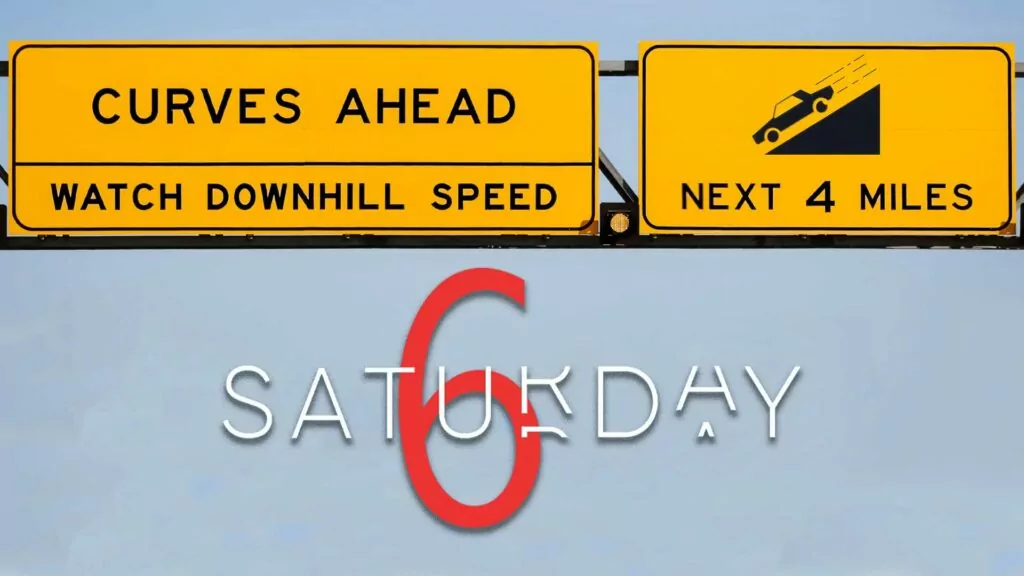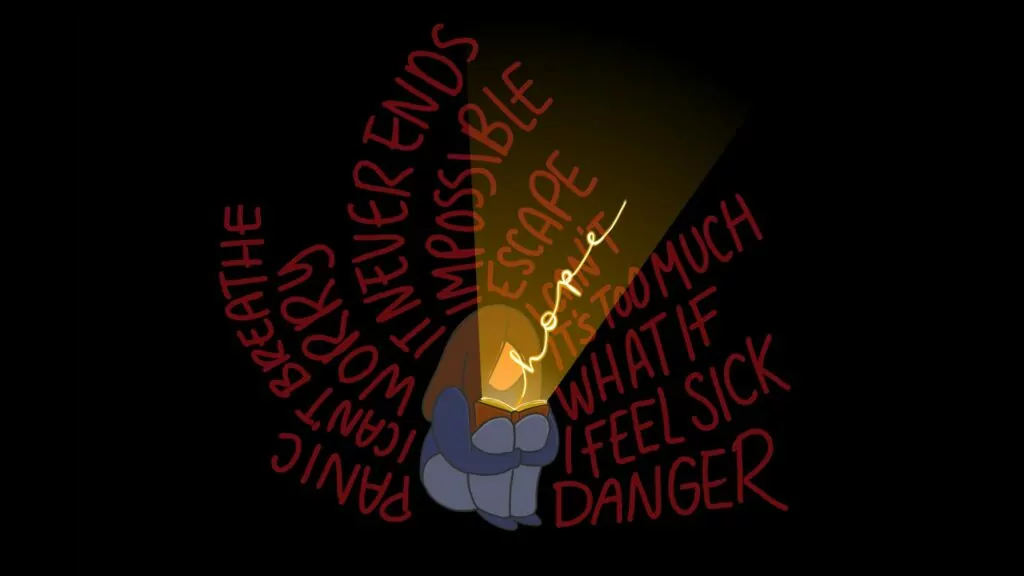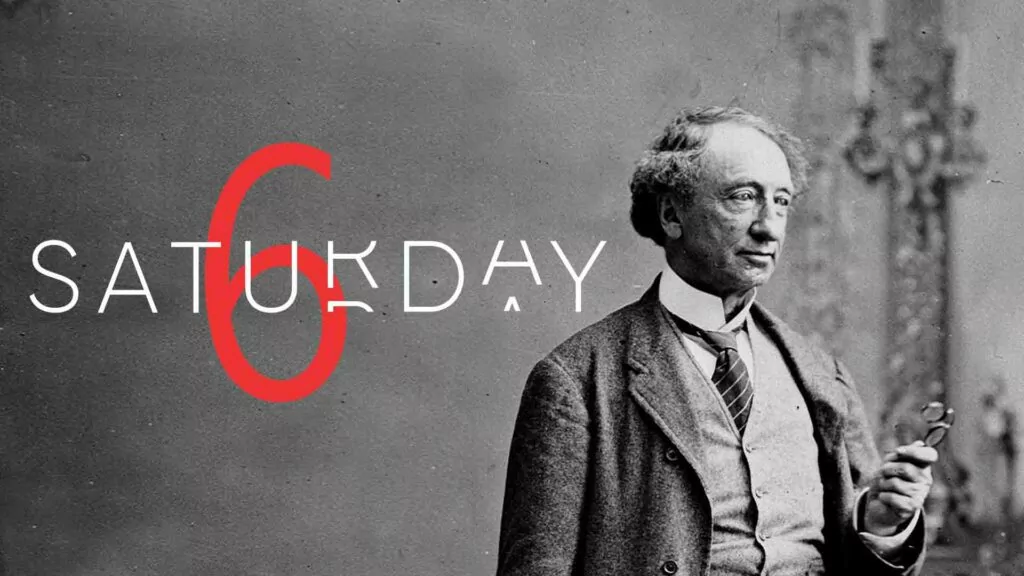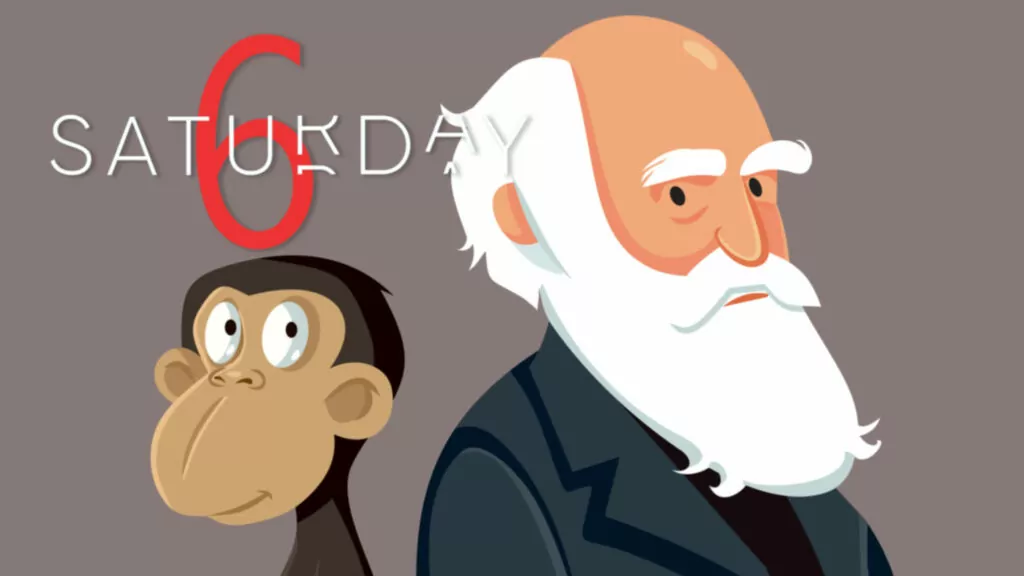Anxiety and the triumph of hope: 3 biblical counsellors explain anxiety
As God’s people wandered in the wilderness, they were sustained by bread from heaven – Manna. Not only was it nutritional, it also came with a best-before date (just one day!). God warned them not to bother saving more than they needed for the day. But some paid no attention and took matters into their own hands, saving extra. The next morning they found that their manna reeked and was filled with maggots.
When I reached out to three biblical counselors for insight into anxiety, two of them referenced “the manna principle,” reminding me of the importance of relying on the LORD one day at a time. It wasn’t a principle I was aware of, but it also didn’t take long to see the connection. Our hope with this article, and this entire issue, is to help each other rely on the LORD’s daily care for us, resisting the temptation to take matters into our own hands. When we trust Him, we will experience His provision as well as peace. We can move into the future with the confidence of lasting hope. When we don’t, it won’t take long and our blessings will be spoiled by our worries and anxieties.
We will begin by seeking insight from three counsellors from the Reformed community in Canada who have experience with providing counsel about anxiety. What follows is an edited account of their answers.
****
We hear a lot about anxiety. How would you explain it to a broader church community, some of whom may not understand why it is getting so much attention?
Heres Snijder, from BC’s Fraser Valley, has been teaching for 34 years in elementary and high schools in Alberta, Manitoba, and BC. He obtained his MA in Counselling in 2007 and is a Registered Clinical Counsellor with the BC Association of Clinical Counsellors. He counsels on work-related stress and burnout among professionals, parenting and family issues, alienation, isolation, bullying and rivalry, anxiety and depression, among other things.
Heres Snijder: Anxiety is any degree of nervousness, worry, or concern that we all experience. There are innumerable reasons and causes for us to fret. Some of the most prevalent ones are fear of death and disease, fear of job loss, fear of self, fear of failure, the fear of not measuring up and not at all mattering, fear of the future, fear of loss (particularly loss of health), and fear of death.
The common denominator that underpins these and other fears is the fear of man. Fear, anxiety, worry, disquiet: these are universal themes in the soul of man.
Rhonda Wiersma-Vandeburgt: Anxiety has both physical, cognitive, and spiritual aspects to it.
Anxiety is physical in the sense that it is both felt physically (racing heart, sweaty palms, hot or tight chest, digestive issues, intrusive thoughts, etc.) and interacts on a physical level (ex. adrenal glands that produce and regulate cortisol and adrenaline and the emotional part of the brain; and the amygdala that controls and regulates emotional responses).
On a cognitive level, anxiety interacts with our worldviews, past and current experiences, beliefs about God self and others, desires and fears, that help form our thought responses (for example: "I'm always a failure") and varying emotions that go with those thoughts (for example: "I'm a failure" often leads to the feelings of worthlessness).
And on a spiritual level, God speaks into all of this and His Word can and ought to inform our reality. He has the answers and the certainties that anxiety is looking for. As a counselor I seek to address all three areas.
Why is anxiety getting so much attention lately?
HS: Anxiety is getting so much attention as a result of man’s preoccupation with himself. When there is no relationship with God who is Sovereign, All-Good, and our Provider, then man, by default must step up to the plate of providing for himself. The is both cause and effect of many anxieties.
John Siebenga: The “pandemic” event drove home the insecurities of many people regarding sickness, health, the fragility of life. Why? So much depends upon the fact that society has written God out of their lives and taken it upon themselves to create order. We have once again eaten the fruit of the tree of knowledge of good and evil, and when God uses the “pandemic” to come knocking and asking, “where are you?”, we hide. We look to the government to give us security, but it is not found there. We look to “science” but “science” just lets us down. We look to the media and discover that they are in cahoots with the government and “science” so they cannot be trusted.
So what do we do, without a higher being to turn to? We cringe in fear and anxiety. We hide our fears and anxieties in escape behind the bushes of delusion and lies. Maybe all this will just pass away. And if not then we will just act as if it did. We smile and say we are fine, just fine when someone asks. We discover that within ourselves there is no antidote to the angst we are feeling. We play our music louder, pour a double of scotch, and for fifteen minutes we feel better. But then it starts all over again.
This calls for a return to a pre-enlightenment worldview. A worldview that saw all of creation founded in the Creator God, Who asks, “Where are you?” and then comforts His broken, created image bearers with the gospel. A gospel that lets our anxious hearts relax and allow Him to take care of this hurting world; that allows Him to address the anxieties of our heart, instead of government, science, or media.
Is this an issue that deserves more attention in the Reformed community? Would you say that the experience in the church is any different than in the broader public?
HS: I would not say that the experience of anxiety in the church is any different than outside of it. Not different, and no, not less frequent, nor less intense either. Individuals who are “churched” are not shielded in any special way against anxiety provoking or inducing situations, relationships or unhelpful/toxic thought patterns. Any human condition, occurrence, loss, or accident will lead us into the realm of anxiety.
In the church, it means that the struggle to surrender control over the anxiety-inducing situation will have a different spiritual and relational outcome. Some respond to anxiety by habitually giving it to God. By surrendering their anxious thoughts (Ps. 139) they foster a peaceful mindset. Others turn away from God and let anger and bitterness sour the relationship with Him, with themselves, and their neighbors. I frequently experience both outcomes in my private counselling practice.
Jesus was open and transparent to his audience that “in this world we will have many troubles.” His encouragement “…take heart – I have overcome the world” (John 16:33) is not heeded by all. Like the rich young ruler whose first love was material wealth, there are anxious Christians who do not surrender their anxieties. “I believe in God, but still I worry all the time… the two can’t go together, right?”
There are many Christ followers who agonize about their salvation, and do not experience assurance whatsoever. They tremble anxiously before a sovereign God. The initiator of the Great Protestant Reformation, Martin Luther, was overcome by tormenting anxieties. No indulgence or self-punishing act or six-hour long confessions could uproot his fear for an eternal future in hell. It resulted in full blown obsessive, compulsive, disordered behaviors.
Rhonda Wiersma-Vandeburgt graduated from Westminster Theological Seminary with an MA in Counselling in 2014 and completed a year-long internship with the Christian Counseling & Educational Foundation (www.CCEF.org) in 2015. She works as a contract counsellor (virtually) through Insight Biblical Counselling in Ontario and has her own practice in Southern Manitoba.
RV: In some ways anxiety does look different in the church community versus the broader public due to the fact that many people feel that they ought not to be anxious so there is an added layer of guilt and angst added to the struggle.
Have you seen any change in recent years when it comes to the prevalence of anxiety? If so, is it because we are just more aware of it now?
HS: Yes. I have taught for 34 years at the elementary, high school and university levels. Eight years ago, I transitioned into the counseling field. Both fields show evidence that the anxious frame of mind is increasingly more prevalent. I think it is the spirit of the times: it is no exaggeration to say that there is an epidemic of anxiety.
RV: There seems to be a combination of both awareness and a number of different factors, such as:
There are changes in our food’s nutrition density and
our struggles with a healthy diet (sugar anyone? Can’t
go without your daily dose of caffeine?);
Influx of technology and 24/7 news leading to ques- tions about where our responsibilities start and end;
Breakdown of community and aspects of not “one- anothering” each other;
We live in a society (either as a whole or in the church community) that does not easily accept weaknesses and human limitations;
We live a comfortable and affluent lifestyle;
Trauma;
Our theology of suffering is not as robust as it could
be;
We live in a culture that encourages emotions to rule
and dictate our thoughts and actions, instead of align- ing our beliefs, thoughts, and actions according to God’s will (we don’t feel “authentic” if we are not true to how we feel in the moment as an example);
We struggle with our identity and we don’t understand our union with Christ as much as we could
How does God go about relaxing our anxious hearts?
JS: One thing that Christians have a hard time with, and maybe it is even a harder issue for Reformed Christians to grasp, is that God is the “overflowing fountain of all good.” We have fled from Him and hid in the Garden, but He still comes looking for us. Guido de Bres, in Belgic Confession Article 17, penned so eloquently and so beautifully how God “set out to seek man when he trembling fled from Him.”
Anxiety at its worst is to be known by God with all the foibles and idiosyncrasies of our fallen humanity. That is man’s greatest fear. Like Rich Mullins sings in another place, “we are weak and not as strong as we think we are.” In our weakness, we can look to Him, but that means we have to admit that we just cannot do it on our own. We need to surrender. Surrender. Such a hard word to accept, embrace and see it as a sign of grace. My sister was wont to call this dethroning God and putting ourself back on the throne. She was right. But God’s rich salvation is all over the Word that God has given us, His love, His mercy, His grace for His people, all the way from Genesis 1 to Revelation 22. So, with John on the isle of Patmos, we can fall down and worship the Lion of the tribe of Judah, the Lamb of God, who takes away the sin of the world.
For too long, much of our preaching has centered on the wrath, justice and the formidable requirements that God requires of us. So often we hear that we are bad, bad, bad and then a quiet addendum at the end of the sermon that says that it is by grace we are saved and so be thankful. The joy of salvation ought to ring from the beginning of the service to the end, and allow God’s people to surrender into the Lord’s loving arms. “Though your sins be as scarlet, they shall be as white as snow” is the same truth today as it was when Isaiah wrote these words so many thousands of years ago.
How do we get that truth to dwell in our anxious hearts? Augustine said it so well in his Confessions: “the heart is restless until it rests in thee O Lord.” Sink back and relax in God’s arms – revel in the joyous dance of the Father, Son and Holy Spirit. And even as inviting and tempting as that sounds, in our weak, feeble minds, we say, “It ain’t easy.” And you would be right. It is actually impossible, “unless we are regenerated by the Spirit of God.”
We need to look to Jesus who bore all our anxious thoughts in the Garden of Gethsemane and on to the Cross. Allow Him to strap you to His yoke because it is easy and His burden is light. Learn from Him, for He is gentle and lowly in heart, and you will find rest for your souls.
That is the promise of the gospel. And if God says so, it must be true. For a Christian, this does not alleviate anxiety; it gives us a place to turn in our anxious moments.
If someone reading this is really struggling with anxiety, what hope do they have of overcoming it?
John Siebenga, from northern BC, is a licensed Christian counsellor with a wide variety of life experiences. This includes working as a journeyman carpenter, a school teacher and principal, and serving with his wife in a Reformed church plant in Prince George.
HS: Lots of hope! First off, anxiety is not a mental illness. In fact, when handled properly, anxiety can lead you towards a thriving and flourishing life. Anxiety does not have to be a pathological condition. Rather, it is like an emotion or a state of mind that signals that a proper response is required – comparable to the blinking light on a vehicle’s dashboard; “check tire pressure”. A proper response is exactly that: check the tire pressure: no need for an oil change just yet – and need to replace the whole engine!
A certain level of anxiety is often necessary and beneficial. If I am faced with, say, having to cross a busy street, or present a speech to a large audience, or write an important exam, or arrange for a difficult conversation, then to not experience any anxiety would actually be more troublesome.
On the other hand, if I have developed such a fear of anxiety that I cannot tolerate it, I may be led to believe that I cannot handle life without an external crutch, like a prescription drug. Even though leading pharmaceutical companies have a vested monetary interest in having me believe that, how about pressing the pause button here to look for some other responses first, prior to resorting to medication right away?
RV: The Lord is near, that is your hope. Our anxieties and fears arouse the deep compassion of God for us. A child cries out for mom or dad when they are scared. When you go to a new situation or event, it's easier to do so with someone you know. There is good reason that following "do not fear," God says "I am with you." We need a person in our struggle with anxiety and fear, and God is the Person to do it with.
Often, we look at the promises of God and we struggle to see how they map onto our life experiences. This is where lament comes in: "God, you say this, but do you see what is happening in my life?" The Psalms are beautiful places to land here, and in this way too we see God's provision for us by giving us words to come to Him. The Psalms so often wonderfully capture our inner struggles and anguish. I encourage my counselees to lament in the face of struggle, but also then to cling to God's character. Who is our God? For example, 2 Kings 6 is a passage I will use in counseling: God is Warrior, He has fiery chariots and angels fighting for us. "Wow. I know you feel alone, but God assures He is with us always."
I also encourage counselees to "push into their fear." Fear and anxiety have a way of narrowing our worlds down because we don't want to do scary and hard things. When we push into our fears, we take God's hand and we "test and prove" that His promises, and who He is, are true. If we do not push outside of our comfort zone, we cannot experience God's grace and mercy for us in times of temptation and sorrow. I would say that overcoming anxiety ought not be a primary goal; use anxiety as an invitation or opportunity to draw nearer to God, that is the goal of life.
Are there practical things that you have found to be helpful as well (relating to physical health, media usage, diet, etc.)?
HS: Yes!
Physical exercise: Adrenaline is the stimulating hormone: it plays an important role in your body's fight-or-flight response. Physical exercise is one very helpful way to restore the balance with a grounding or resting hormone, cortisol. Exercising outdoors offers additional benefits: no indoor air for a change, the changing scenery as you walk or jog…
Media usage: No screen time for one to two hours prior to putting your head on the pillow. The mind needs time to prepare to enter into sleep.
Good night’s sleep: Embrace the fact that sleep is a gift of God. Today’s society has devalued sleep to the level of an unwelcome interruption in the working routine. To receive sleep as a kind gift of God, what a difference it will make when we prepare the mind to receive it humbly and gratefully as such! (Ps. 127:2; Ps. 4:8).
Cut sugar out of your diet
Connect meaningfully, face to face, regularly with friends, family, neighbors.
Play board games.
Make music: Sing! Join a choir!
RV: Breathing deeply (umbrella breathing, choir breathing, diaphragm breathing, box breathing) is helpful because when we are afraid or anxious, our breathing typically because more rapid and shallow. When we breathe deeply, we increase oxygen into our bloodstream, which helps our brain function optimally, and shallow breathing typically is a physiological response that will increase anxiety.
Sleep is wonderful. However with anxiety sleep oftentimes is restless, broken, or simply impossible. Napping and resting physically are all helpful and listening to music to help with relaxation has been helpful for some of my counselees. I recommend soothing music like Scripture Lullabies or piano music with nature sounds. Another useful app that I found personally helpful was the Dwell App, which is a Scripture listening app that has different music to listen to while someone is reading Scripture out loud.
Screen time is often a contributor to anxiety. We all struggle to one degree or another with FOMO (fear of missing out), and an insatiable attitude for "one more" when it comes to shorts on YouTube, Instagram, or SnapChat. This leads to low grade anxiety. Place extensive limits on social media and news outlets. In counseling I talk about the "manna principle" (shared by a professor at CCEF): God provided the Israelites with just enough manna for one day. They were not allowed to gather up or store extra manna for the next day (except the night before the Sabbath). In this way, God will give you just enough for what you need today. Where can you see God's provision for you today?
Praying with another person through Scripture (see Donald Whitney's resource Praying Scripture") is immensely helpful to not feel alone and also to know that there are words we can pray when we are feeling wordless (1 Peter 5:7). I encourage mediation on Scripture. For example, "fear not little flock, I have been pleased to give you the kingdom" (Luke 12) is a short phrase that we can sit and chew on for a while: "I am a sheep, God is my shepherd. I am little but God is big and powerful. God is pleased to give to me; He is generous! He is pleased to give me his kingdom. What does it mean to be part of his kingdom? If I am part of his kingdom, that means I am a royal child, a citizen, that gives me identity"...and so forth.
What things should be avoided?
RV: I speak to a help here: please do not assume that you understand what a person is going through even if you have struggled with anxiety. Ask good questions, seek to really know the peson, and point to Jesus.
HS: A few things include:
Exposure to “news” media: The incessant litany of catastrophe, discord, fights, protests, violence, and accidents – without a split-second opportunity to actually process these events – leads to a persistent state of mind of “overwhelm,” resulting in elevated levels of anxiety.
Isolation
Appreciate FOMO for what it is: Ask yourself: have I led myself into FOMO – a Fear Of Missing Out – and do I now need to know what is going on in the lives of all my FaceBook friends, etc.? As a result, have I developed a screen dependency in the process? As well: have you experienced the other side of the digital platform coin, JOMO? Have you ever participated in a fast from digital media, and discovered the Joy Of Missing Out (on unnecessary information, trivia, tales, gossip)?
Is there anything else you want to share with our readers on this topic?
HS: I believe that there is much to say in support of the notion that “the hand that rocks the cradle rules the world.” Parents are more crucial in this regard that teachers, pastors, elders. When anxiety related interventions need to be initiated by teachers or church leaders, it is typically “too little, too late.”
Generally, children must have two questions answered. The first one is: “Mom, dad – do you love me?”
The answer, in a multitude of different ways must be a resounding “Yes, child! You are loved, you are unique, you have gifts, you are safe and you are valuable!”
The second question is: ‘Can I get, and do, what I want?”
And the answer has to be a transparent “NO! We love you, and because we do, we will train you to become an individual, a character with a sturdy spine and a soft heart, because – life is difficult, and you are not in the driver’s seat of your life, and contrary to today’s society’s insistent mantra, you are not the center of the universe, you will die one day, and your life is not just about you.”
This sobering and limiting boundary-setting template, surprisingly, reduces a multitude of anxieties and number of questions that begin with “what if…?”
RV: One topic that is under-conversed is the reality of post- partum anxiety some women can experience. Women have de- scribed feeling “crazy” and scared because of intrusive thoughts that involve thinking and even visualizing acts of harm towards themselves or their children. Women have been paralyzed by obsessively checking on their children while sleeping. Women have described a paralyzing fear of leaving the home after a child and being unable to sometimes get out of a vehicle if they have managed to drive somewhere.
You’re not alone and you’re not crazy if you can resonate with the above examples. Postpartum anxiety (and depression!) is real. It involves hormones so it is a biological struggle that is interacting with heart desires, past experiences, and worldview. Both counseling, being monitored by a general practitioner, and visiting a naturopath doctor are all recommendations that are available and that I would recommend.
Illustration by Stephanie Vanderpol. ...































